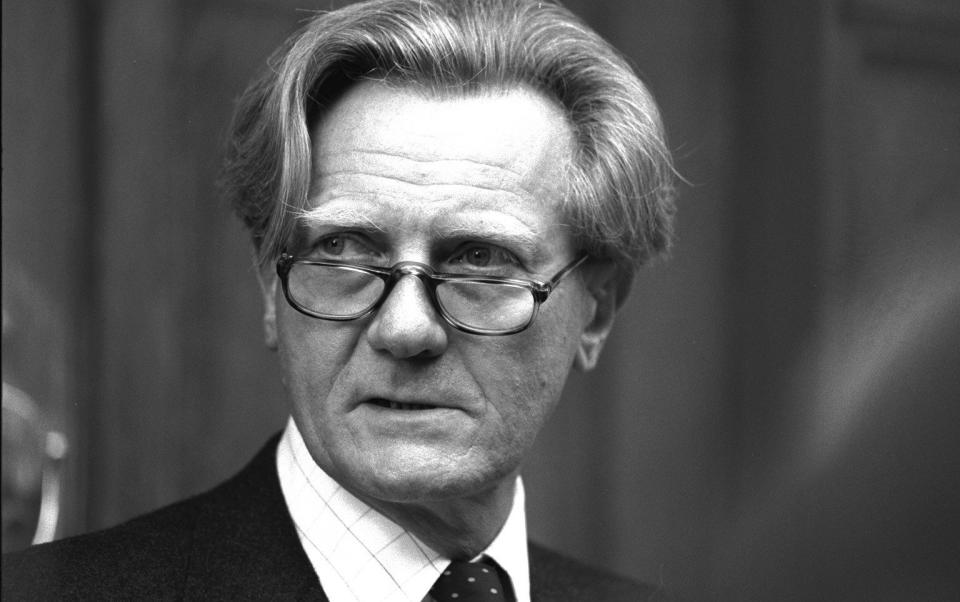Rishi Sunak and Sajid Javid will now believe they can avoid Heseltine’s fate

By resigning within minutes of each other, Sajid Javid and Rishi Sunak jointly wielded the knife, and they no doubt hope that in doing so one of them will get to wear the crown.
The hesitancy of Cabinet ministers to lead the charge against Boris Johnson in recent months has been put down to the belief that direct challengers never get the top job. Lord Heseltine’s humiliation after he forced out Margaret Thatcher cast a long shadow over the Conservative Party.
But if Mr Johnson is, ultimately, toppled as a result of Tuesday’s events, it will be impossible to pinpoint whether it was Mr Javid, who quit first, or Mr Sunak, the senior man, who started the landslide.
Both harbour ambitions of becoming the next prime minister, and both will now be calculating that by sharing responsibility for an attempted coup they will avoid the fate of Lord Heseltine and go on to lead the country.
The former chancellor’s team insists the two resignations were not co-ordinated, but the two men are friends (Mr Sunak often spoke about how helpful Mr Javid was when he took over as chancellor) and it seems unlikely that both of them were simultaneously writing their lengthy and considered resignation letters without a clue of what the other was up to.
A big gamble with plenty at stake
For both men, it was something of a gamble, but Mr Sunak had the most to gain and the least to lose.
Many of his supporters believed that he should have taken the opportunity to resign when he was fined over partygate in April. It would have put clear distance between himself and the Prime Minister over the moral questions raised by the scandal, and it would also have moved the news agenda on from the saga of Mr Sunak’s green card and his wife’s non-dom status.
Instead, Mr Sunak went from being a shoo-in as the next prime minister to the bottom of the rankings among Tory members.
For him to resurrect his leadership ambitions required a grand gesture. The Chris Pincher affair gave him the chance to resign on a point of principle, rather than as a result of a political disagreement with Mr Johnson (of which there have been many) which might just be enough to revive his chances of succeeding him.
The bookies certainly think so. Within hours of the resignations, Mr Sunak had been installed as the favourite to become the next Tory leader, with betting on Mr Johnson’s demise suspended.
Mr Javid averaged eighth in the bookies’ rankings of who might take over if Mr Johnson goes, but his position is likely to improve among the increasing number of Tory members who have run out patience with the Prime Minister.
He will also have calculated that by having the gumption to resign first, he will be applauded by Mr Johnson’s enemies and rewarded with one of the top three Cabinet posts should he fail to win a leadership contest.
It is the second time he has resigned from Mr Johnson’s Cabinet on a point of principle. In Feb 2020, he quit as chancellor less than a year into the job when the Prime Minister told him he could only stay on at the Treasury if he sacked all of his advisers.
Mr Javid returned to the Cabinet as Health Secretary last year after more than a year on the backbenches. It was his sixth Cabinet post, having previously been the secretary of state for culture, business, housing, and the Home Office, as well as chancellor, making him one of the most experienced ministers in Parliament.

Mr Sunak and Mr Javid should be encouraged by the fact that history shows Lord Heseltine’s famous comment that “he who wields the knife never wears the crown” to be untrue. In 1975, Thatcher challenged Ted Heath’s leadership of the Conservative Party, and she went on to lead her party for 11 years.
Mr Johnson was instrumental in forcing out Theresa May, having resigned as foreign secretary over her Brexit proposals and then undermined her at every turn from the backbenches. On the other side of the House, Gordon Brown schemed against Sir Tony Blair for years before finally taking over in Number 10.
The question for other potential leadership contenders is whether there is any point in staying in the Cabinet. David Davis, himself a former leadership hopeful, said on Tuesday night that “if you’re still in [the Cabinet], then you’ve disqualified yourself from that contest”.
Mr Javid said in his resignation letter that Conservatives should be “hard-headed decision-makers”. It is a phrase he was surely applying to himself, and in doing so he was hinting that those who do not resign do not merit the same description.
Meanwhile, Mr Sunak echoed Oliver Dowden, who resigned as party chairman after last month’s two by-election defeats, in saying that “we cannot continue like this”.
Messrs Sunak and Javid will have calculated that every minister now showing loyalty to Mr Johnson will be dragged down with him if he is forced out in the coming weeks or months, thinning out the field when the race to pick a new party leader begins.

 Yahoo Finance
Yahoo Finance 